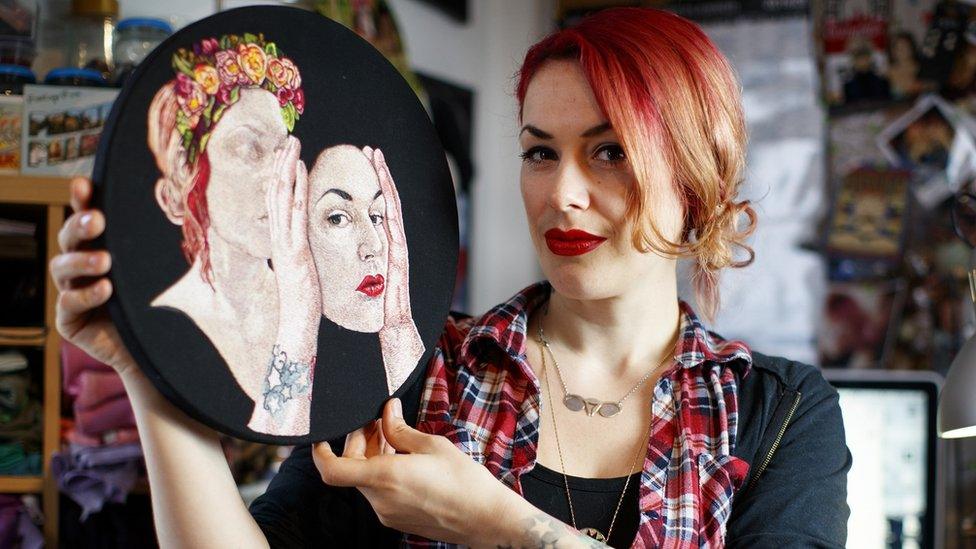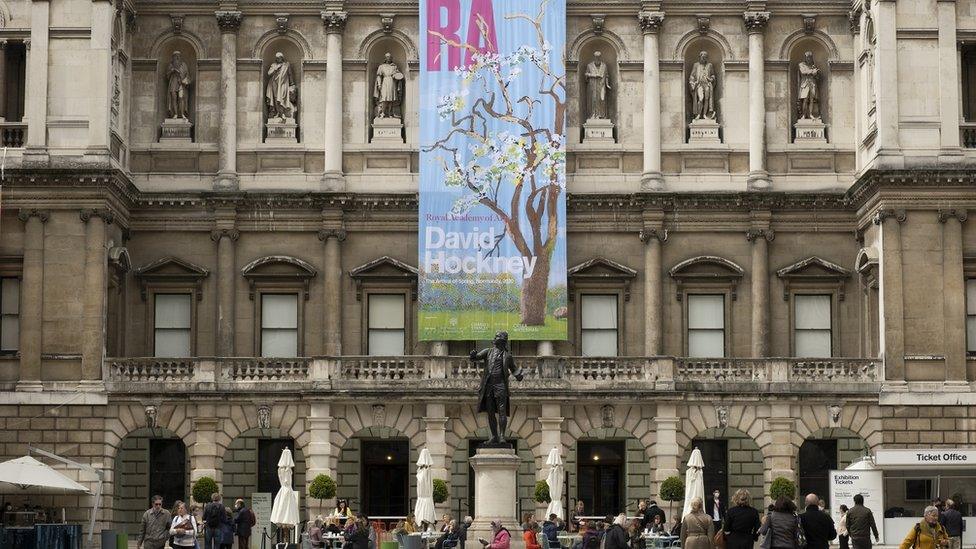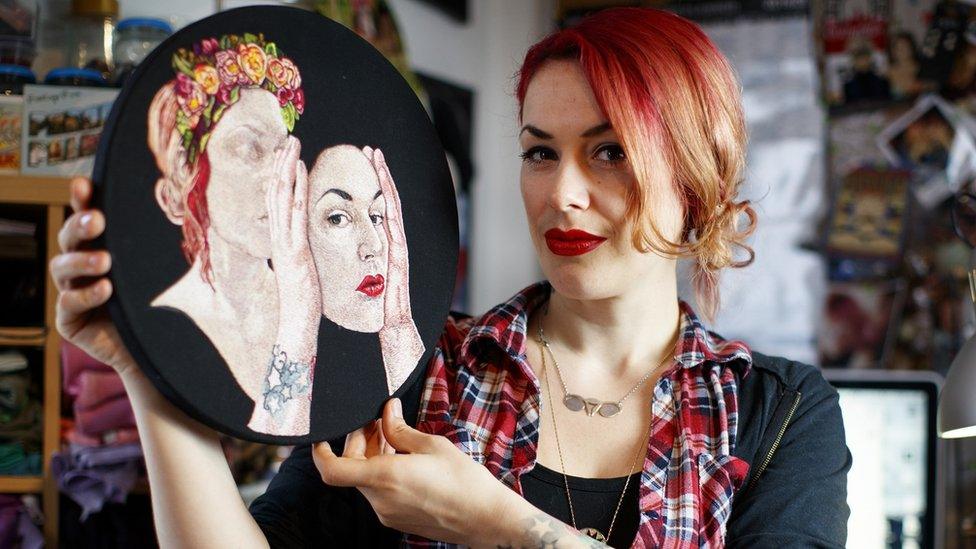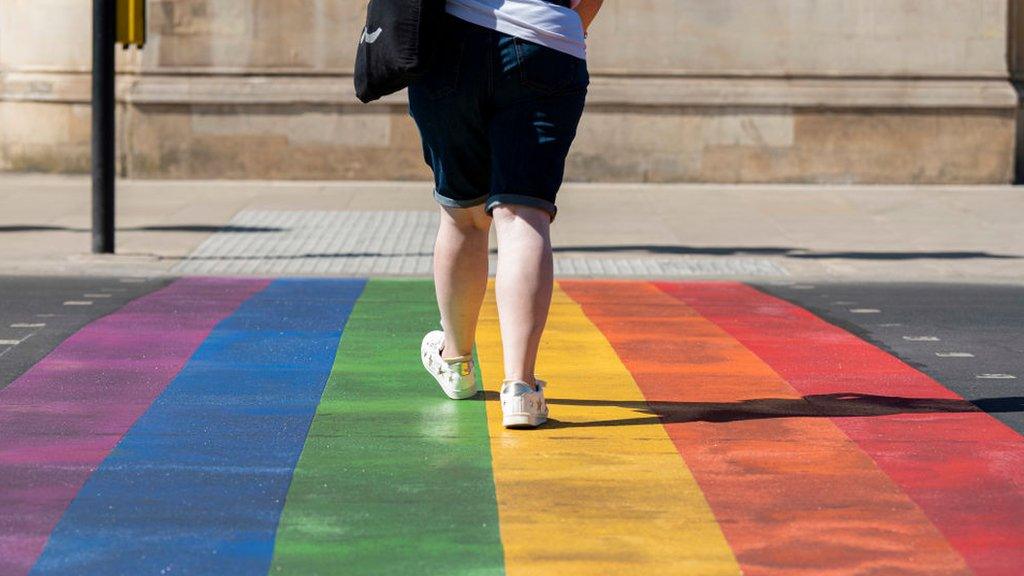Royal Academy apologises to artist Jess de Wahls in transphobia row
- Published

Jess de Wahls creates hand-sewn portraits from recycled clothes
The Royal Academy of Arts has apologised to artist Jess de Wahls after removing her work from its gift shop following complaints that she had expressed transphobic views.
Her embroidery was removed after a backlash over comments she made in 2019 saying "humans can not change sex".
De Wahls, who denies transphobia, said she "appreciates" the apology.
"We had no right to judge her views," the prestigious London institution said in a statement, external on Wednesday.
'Thought long and hard'
"There has been a great deal of debate around the RA's recent communication about no longer stocking the work of Jess de Wahls in the Royal Academy shop," it said.
"We have thought long and hard since then about this and the wider issues it raises.
"One thing is clear to us now - we should have handled this better. We have apologised to Jess de Wahls for the way we have treated her and do so again publicly now. We had no right to judge her views on our social media. This betrayed our most important core value - the protection of free speech."

The Royal Academy re-opened last month after some Covid-19 restrictions were lifted
The Royal Academy blamed "a failure of communications internally" for de Wahls first hearing via social media that her work was being dropped, and promised to "now reopen discussions with her" about restocking it.
De Wahls said the apology was "common sense and I am glad we are getting back to that", adding: "I hope this makes other institutions wake up and take note."
The German-born textiles artist wrote in a blog in 2019 that "a woman is an adult human female. (Not an identity or feeling.)"
She told BBC Radio 4 on Monday she had received lots of support in the light of the Royal Academy's original decision to remove her work.
"The feedback I'm getting from the general public is quite the opposite [from the Royal Academy's stance]. This isn't going to go away. This is a conversation that needs to happen in public."
Veteran LGBT rights campaigner Peter Tatchell was among her critics, saying her views "should be challenged" and there was "not a legitimate reason to deny the reality of trans identity".
Freedom of expression
Culture Secretary Oliver Dowden welcomed the apology, external, saying: "Freedom of expression is central to great art and culture and should always be protected."
In its statement on Wednesday, the Royal Academy added: "Plurality of voices, tolerance and free thinking are at the core of what we stand for and seek to protect.
"These events raise some fundamental issues. Freedom of expression can open up debate, create empathy or respect for difference, it can also at times cause hurt and outrage.
"This has confirmed to us our commitment to freedom of expression and to addressing complex issues through engagement and debate.
"We will continue to reflect on this and to look at our internal processes to ensure we learn from it. We want to make sure we navigate this better in future."

Follow us on Facebook, external or on Twitter @BBCNewsEnts, external. If you have a story suggestion email entertainment.news@bbc.co.uk, external.
Related topics
- Published21 June 2021

- Published16 May 2024
